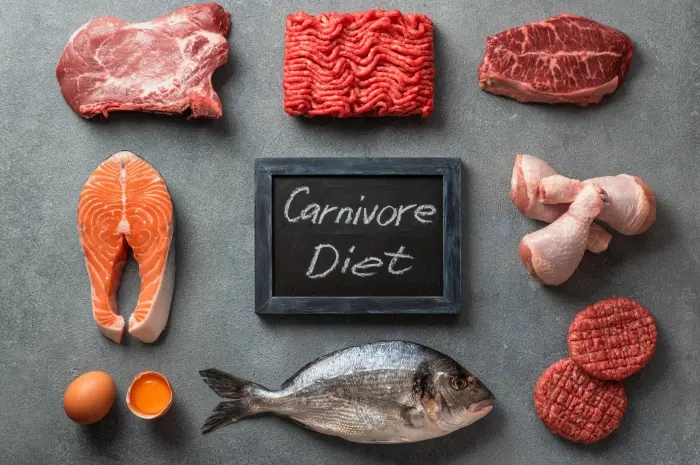A heart-healthy diet plan is a valuable tool in promoting cardiovascular health, reducing the risk of heart disease, and enhancing overall well-being. By following a well-structured and balanced eating regimen, individuals can nourish their bodies with essential nutrients while minimizing the intake of harmful substances.
This article aims to provide a detailed guide to creating a heart-healthy diet plan, encompassing key principles, meal ideas, and practical tips for long-term success.
1. Principles of a Heart-Healthy Diet Plan
1. Emphasize Plant-Based Foods
The foundation of a heart-healthy diet plan is centered around plant-based foods. Include a variety of fruits, vegetables, whole grains, legumes, and nuts in your meals. These foods are rich in fiber, antioxidants, vitamins, and minerals, which contribute to optimal heart health.
2. Choose Lean Proteins
Incorporate lean protein sources into your diet, such as skinless poultry, fish, legumes, and tofu. These options are low in saturated fats and provide essential amino acids, supporting muscle health and overall well-being.
3. Opt for Healthy Fats
Include healthy fats in your diet plan, such as avocados, nuts, seeds, and olive oil. These sources of monounsaturated and polyunsaturated fats help reduce bad cholesterol levels (LDL) and lower the risk of heart disease. However, moderation is key due to their high calorie content.
Limit Saturated and Trans Fats: Reduce the consumption of saturated fats found in fatty meats, full-fat dairy products, and tropical oils like coconut and palm oil. Additionally, avoid trans fats, commonly found in processed and fried foods, as they raise bad cholesterol levels and increase the risk of heart disease.
4. Minimize Sodium Intake
Limit your sodium intake by reducing the consumption of processed foods, canned goods, and fast food. Instead, opt for fresh, whole foods and flavor your meals with herbs, spices, and natural seasonings to lower your risk of high blood pressure and heart disease.
5. Control Added Sugar
Limit your intake of added sugars from sugary beverages, desserts, and processed snacks. Excessive sugar consumption contributes to weight gain, diabetes, and heart disease. Opt for naturally sweet foods like fruits to satisfy your sweet tooth.
6. Portion Control
Practice portion control to maintain a healthy weight and prevent overeating. Use measuring cups, visual cues, or smaller plates to control portion sizes and listen to your body’s hunger and fullness cues.
2. Sample Heart-Healthy Diet Plan
Here is a sample heart-healthy diet plan to help you get started:
Breakfast:
- Overnight oats topped with fresh berries, sliced almonds, and a drizzle of honey.
- A cup of herbal tea or freshly brewed coffee.
Mid-Morning Snack:
- A small handful of unsalted mixed nuts.
- A piece of fruit, such as an apple or a banana.
Lunch:
- Grilled chicken or tofu salad with mixed greens, cherry tomatoes, cucumber, and a sprinkle of feta cheese.
- A whole grain roll or a side of quinoa.
- A glass of water or unsweetened iced tea.
Afternoon Snack:
- Greek yogurt with a tablespoon of chia seeds and a handful of sliced strawberries.
Dinner:
- Baked salmon or a grilled vegetable stir-fry with tofu, served with brown rice or whole wheat pasta.
- Steamed broccoli or roasted Brussels sprouts.
- A side salad with mixed greens, carrots, and a light vinaigrette dressing.
Evening Snack:
- Carrot sticks with hummus or a small handful of air-popped popcorn.
3. Practical Tips for a Heart-Healthy Lifestyle
- Meal Preparation: Plan and prepare your meals in advance to avoid relying on unhealthy, processed options when time is limited. Batch-cooking and storing meals in portioned containers can save time and encourage healthier choices.
- Read Food Labels: Familiarize yourself with reading food labels to identify hidden sources of unhealthy fats, sodium, and added sugars. Choose products with lower amounts of these ingredients to support a heart-healthy diet.
- Stay Hydrated: Ensure an adequate intake of water throughout the day to maintain proper hydration. Water supports optimal heart function, aids digestion, and helps maintain overall health.
- Regular Physical Activity: Combine your heart-healthy diet plan with regular physical activity. Engage in aerobic exercises, strength training, or activities you enjoy to promote cardiovascular fitness and overall well-being.
- Seek Professional Guidance: If you have specific dietary concerns or health conditions, consult a registered dietitian or healthcare professional for personalized guidance and support in developing a heart-healthy diet plan.
Conclusion
Adopting a heart-healthy diet plan is a proactive step towards nurturing your cardiovascular health. By incorporating plant-based foods, lean proteins, healthy fats, and practicing portion control, you can reduce the risk of heart disease, maintain a healthy weight, and enhance your overall well-being.
Remember to make gradual, sustainable changes, and seek professional guidance when needed. Prioritize your heart’s health and savor the benefits of a nourishing, heart-healthy lifestyle.




